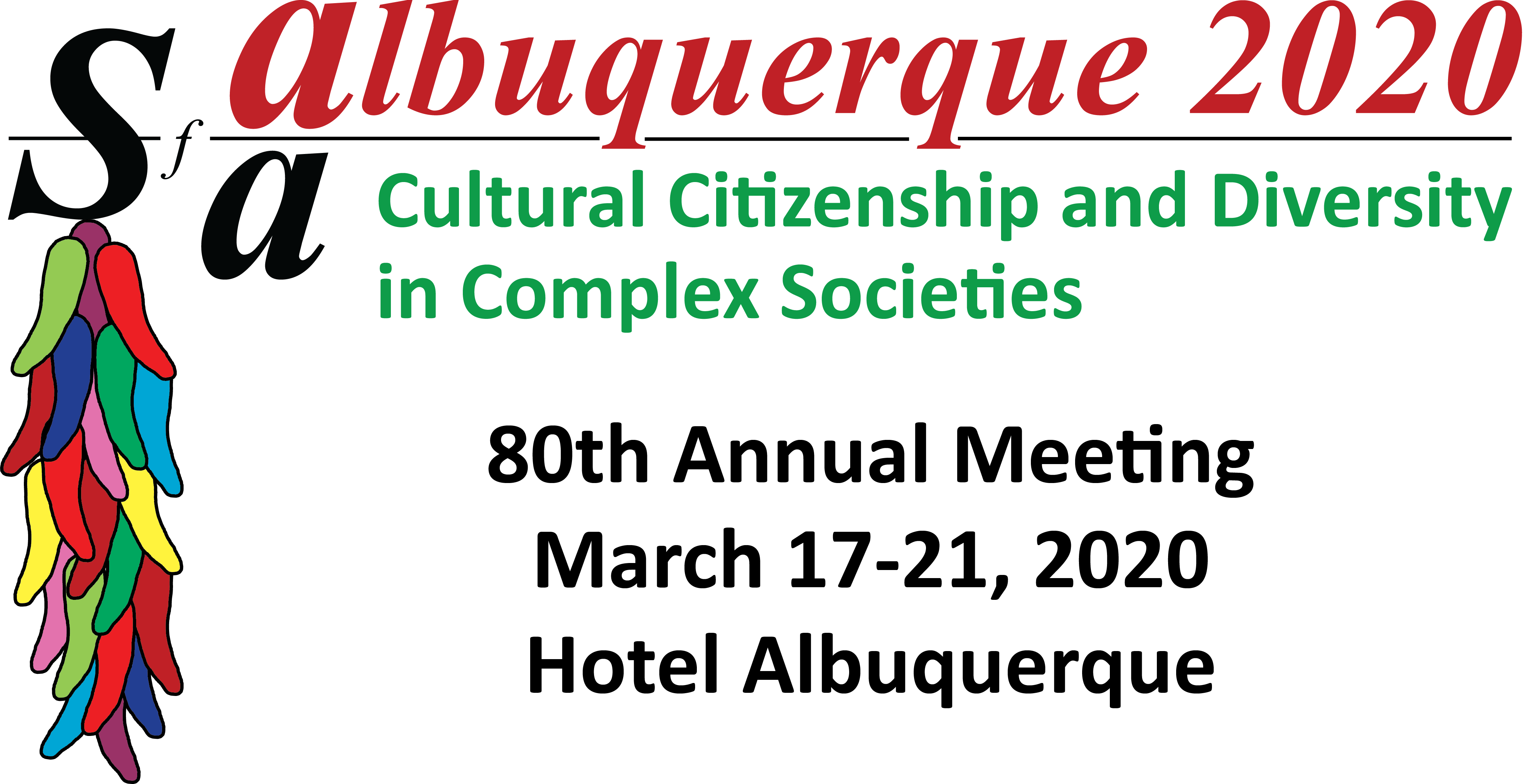An account is required to join the Society, renew annual memberships online, register for the Annual Meeting, and access the journals Practicing Anthropology and Human Organization
- Hello Guest!|Log In | Register
Workshop Abstracts
CHRISOMALIS, Stephen (Wayne State U) Mentoring Workshop: Building Professional Networks in Anthropological Science. This workshop helps students (undergraduate and graduate) and early-career scholars (postdocs, non-tenure-stream, practicing/professional) build skills to help expand their intellectual networks and find mentorship beyond that provided by their degree program – to make sense out of a sometimes-daunting disciplinary and professional environment. The workshop helps participants talk to broad communities of anthropologists and other social scientists about their work. We will develop practical, actionable strategies for finding like-minded scholars and practitioners within participants’ topics of study, cultivate ‘network thinking’ aimed at academic, non-academic, or hybrid careers, and generate short-form professional narratives for various professional goals. chrisomalis@wayne.edu (F-109)
CLARK, Deja and DELGADO, Hannia (Cool Anthropology, CUNY), BAINES, Kristina (CUNY Guttman), COSTA, Victoria (Cool Anthropology) Making Your Research Make a Difference: Designing a Step-by-Step Strategy to Engage the Public with Social Media. Social media platforms can be both a democratizing force and a dismissive space, simultaneously making research accessible and applicable to a wide audience while also rendering it reductive and dangerously generalized. In this workshop, primarily led by undergraduate interns with Cool Anthropology, participants will develop a step-by-step plan to get their research and applied projects put to a wide audience without compromising rigor or grounded discussion. It is increasingly important that anthropologists are more than researchers and practitioners but are engaged citizens, and this workshop invites participants to engage with their own work with a new perspective. yesbaines@gmail.com (W-18)
GATEWOOD, John B. (Lehigh U) and LOWE, John W. (Cultural Analysis) Cultural Consensus Analysis. This five-hour workshop is an introduction to cultural consensus analysis and how to use it to study the social organization of knowledge. Topics include: the original problem that consensus analysis addresses; the “formal” versus “informal” methods and the kinds of data collections appropriate for each; the need to counter-balance items when using the informal method; using consensus analysis to study sub-cultural variation; how different distributional patterns of knowledge affect the key indicators of consensus; and number of questions needed for reliable assessments of respondent-by-respondent similarity. Discussion of recent developments with CCA and issues in participants’ own research, as time allows. (F-78)
HASSOUN, Rosina (Saginaw Valley State U), NGIN, ChorSwang (CSULA), SALVI, Cecilia (Grad Ctr CUNY), YEH LITT, Joann (Law Offices of John Jonannes), BORJON, Luz Maria (CSULA) Cultural Expertise on Aiding Refugees, Asylum Seekers and Undocumented Migrants. In anthropology’s engagement with the legal system, our “cultural expertise” (Holden 2019) requires further anthropological examination and “field-testing.” In this workshop for practitioners and graduate students, an immigration attorney and a DACA/Dreamer expert examine, along with two anthropological experts on asylum seekers and refugees, the explicit roles anthropological expertise and community partnership can play to advance the legal citizenship of the refugees, asylum seekers and undocumented migrants in the United States. The workshop includes an overview of US court cases and employs role-playing to demonstrate anthropological expert testimony in court and successful collaboration with community and international partners. The workshop is supported by the SfAA Immigration Initiative, and is offered at no cost to participants. rhassoun@svsu.edu (W-109)
MCLAIN, Rebecca and BANIS, David (Portland State U), STANTON, Katie (OR State U), CERVENY, Lee (USFS PNWRS) Interactive Workshop on Public Participation Mapping. Public participation mapping is becoming an important data collection and public engagement tool for public agencies, community organizations, and others interested in mapping and visualizing the values associated with specific locations on a landscape. This 3-hour interactive workshop walks participants through the maze of options open to mapping practitioners, including considerations related to data collection methods, map design, sampling, outreach, analysis/visualization of results, interpretation of results. The focus of the workshop is on designing mapping projects that will result in data of immediate practical use for community organizations and planners. No previous GIS or mapping experience needed. rebecca.mclain@gmail.com (TH-108)
NOLAN, Riall (Purdue U & Cambridge U) Becoming a Practicing Anthropologist: A Workshop for Students Seeking Non-Academic Careers. This workshop shows students (undergraduate, Master’s and PhD) how to prepare themselves for practice, even within a traditional anthropology program. Six areas will be covered: 1) Practice careers; 2) Practice competencies; 3) Making graduate school count; 4) Career planning; 5) Job-hunting; and 6) Job success. The workshop is three hours long. rwnolan@purdue.edu (F-18)
STINNETT, Ashley (WKU) Applied Visual Ethnography Workshop. This half-day workshop is an introduction to applied visual ethnography. Participants will gain hands-on experience with audio and video equipment, learning the fundamentals of audio-visual research methodologies. The workshop will be tailored to meet varying levels of filmmaking experience, but primarily will be geared towards individuals who are exploring the possibility of incorporating visual media into fieldwork and/or community partnerships. Training will incorporate fieldsite media kits including tripods, DSLR cameras, handheld digital audio recorders, and external microphones. Recommendations will be made for both editing and fieldkit assembly based on affordability, fieldsite conditions, participant skill level, and institution. ashley.stinnett@wku.edu (W-108)
WOLF-MEYER, Matthew (Binghamton U) Society for Medical Anthropology Professionalization Seminar. This workshop is intended for advanced graduate students and recent Ph.D. recipients who are on, or preparing to be on, the academic job market. We will discuss formatting academic CVs, the preparation of job letters, the content of teaching and research statements, the design of syllabuses and assignments, and what to expect during the selection process and on-campus visits. Participants should leave with a clear sense of how to prepare these documents, how search committees operate, and what the outcomes of the job-seeking process are. mwolfmey@binghamton.edu (TH-48)


Cart
Search